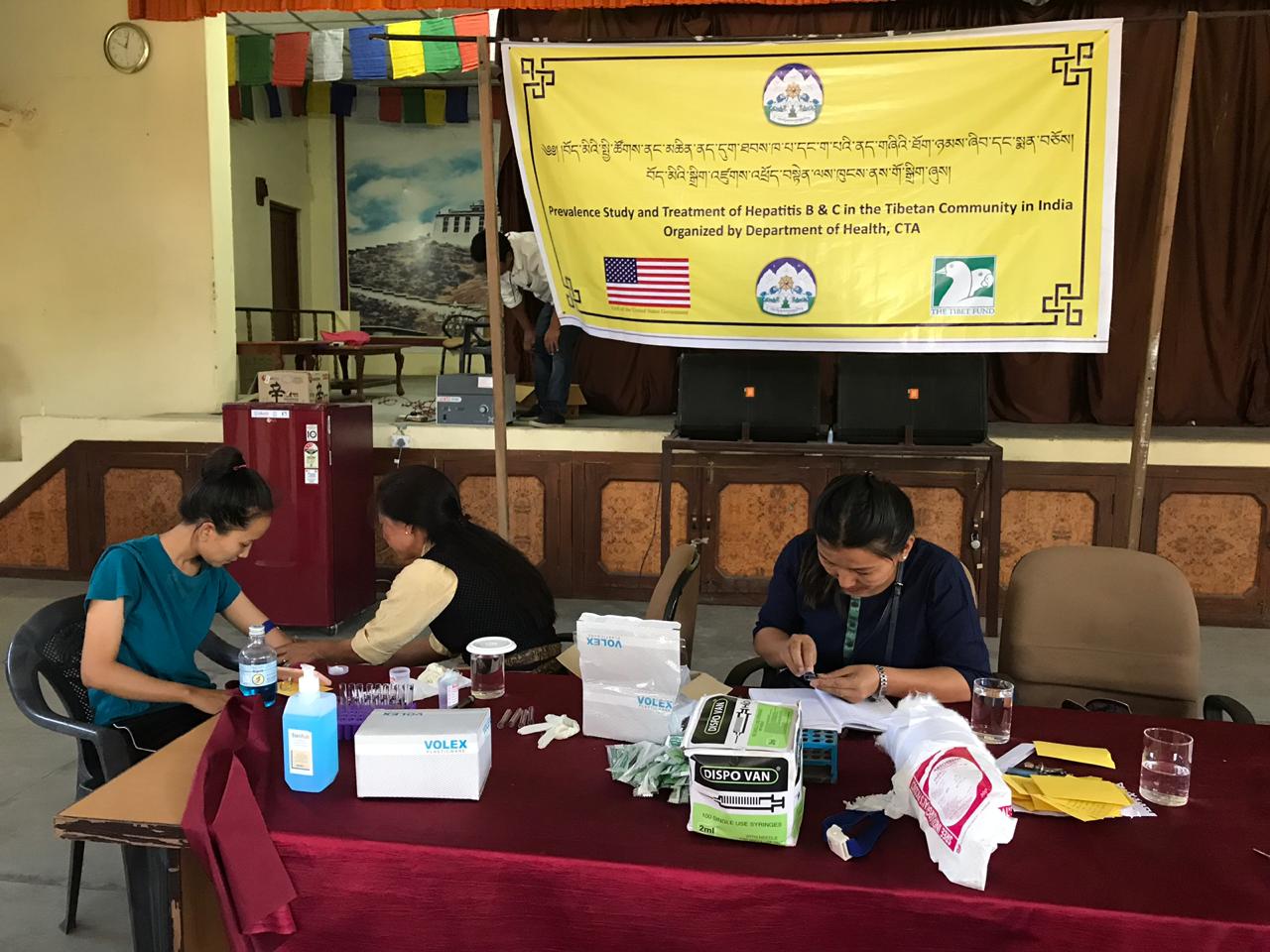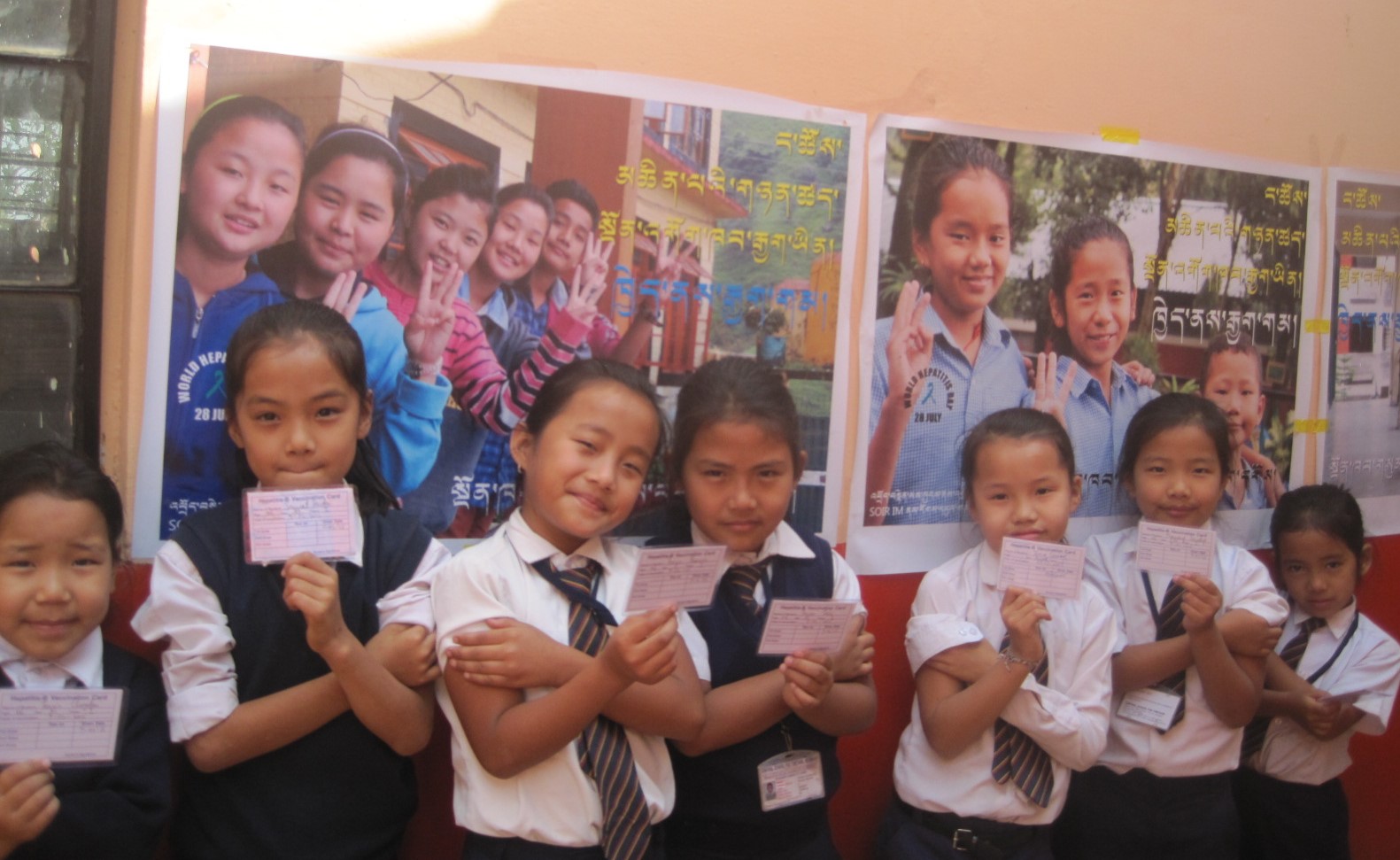Viral Hepatitis

Hepatitis B infection is caused by the hepatitis B virus (HBV), an enveloped DNA virus that infects the liver, causing hepatocellular necrosis and inflammation. Among the communicable diseases, hepatitis B and tuberculosis (TB) are the two diseases that plaque the Tibetan Refugee communities living in India & Nepal. The prevalence of hepatitis B is estimated to be much higher among the Tibetan refugee population living in the Indian subcontinent as compared to the local host population. The findings from a study carried out in the Bylakuppe Tibetan settlement in South India jointly by DoHe-CTA and Johns Hopkins University (JHU) in 2014 suggests that Tibetans living in India has about 9 % prevalence of chronic Hepatitis B infection.
DoHe-CTA has been working in the area of hepatitis B with a focus on prevention; the key intervention strategy being the universal vaccination against hepatitis B virus for under-5 children and the prevention of new infection through three/four dose hepatitis B and they will continue to be the key intervention strategies.
Screening for Hepatitis B infection results in identification of people with chronic hepatitis B infection who are undiagnosed earlier. With the funding support from the US PRM, Department of Health, CTA has started Hepatitis B screening, vaccination and Treatment support for Tibetans in India. In 2019, a people of about 11000 has been screened for Hepatitis B and C.


